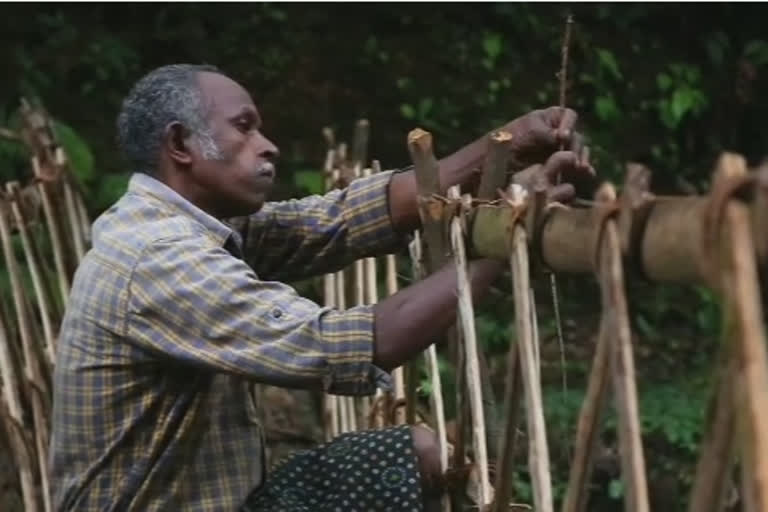Udupi(Karnataka): Lack of bridges remains a major hurdle in ensuring last-mile connectivity in rural India. In this Karnataka village, a person has kickstarted a campaign to construct bridges made of bamboo and woods, thus offering an eco-friendly touch to a much needed modern amenity.
Purushotama Adve, the man behind the initiative, decided to settle down in Mala village after being impressed by the beauty of the village.
The village looks like Meghalaya owing to its natural beauty with an abundance of streams, groves and forests, but lacks connectivity.
With youngsters preferring to stay in towns and cities, the area is mostly left with elderly people, thus turning the place into a sleepy village with a peculiar lull to its existence.
Crossing the wild streams during monsoons is not easy and not much of government-funded works are sanctioned to the area because there are not many people living in these hamlets.
For over 200 years, the bridges in these villages were built using bamboo and areca nut trees. Constructing bridges with whatever materials available locally is an old concept and that art is waning now.
The wooden bridges, built by farm workers on every weekends, now act as a lifeline to the people in the area, which does not have much connectivity via roads either.
Read: Kerala villagers chip in to help stranded Rwandan footballer
Speaking to ETV Bharat, Purushotama Adve said, "We thought of preserving this unique skillset for the future generation involving local people. Thus, the idea of 'Setuve Bandha' evolved."
"Every Saturday and Sunday, we used to rope in our farmworkers to construct the bridges. We have enough materials available in the farms itself and need not procure much from the towns," Adve added.
According to Adve, the concept is not new as people used to construct bridges with natural materials in the past. After Setuve Bandha was initiated, they have already constructed two such wooden bridges.
WATCH: Inter-state couple ties knot at Chinnar bridge in Kerala
"In order to help local people and farm workers, we have taken up the initiative of constructing wooden bridges," Adve said.
His idea of constructing wooden bridges has garnered much appreciation from the farmworkers also as they are built using locally sourced woods and other forest produce.
One among the farmworkers, Srinivas said that they used the areca nut trees fallen in the farms for the bridge. The ropes were made using the wild creepers. "In fact, we can make these bridges in multiple designs", he added.
The bridge is built in such a way that structure remains animal friendly and poses no threat to wildlife as the case is with concrete bridges. This wooden things of beauty is usually 30 feet long and 3 feet wide.



